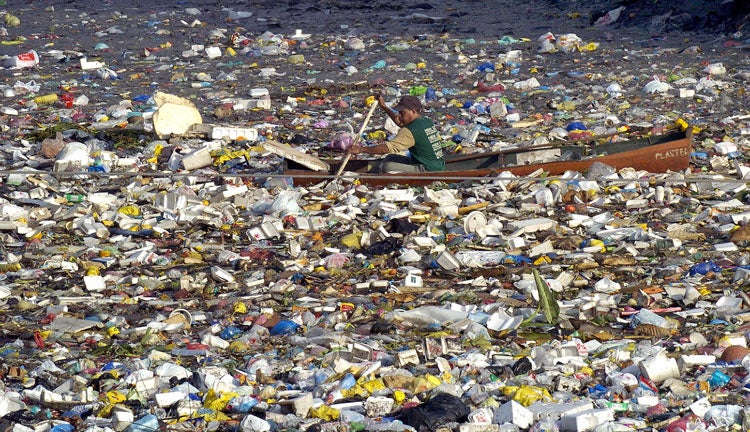Steve Connor: Why plastic is the scourge of sea life

One cigarette lighter, a toothbrush, a toy robot and a tampon applicator. The list of plastic items recovered from the stomach of a Laysan albatross chick that died on a remote Pacific island reads like a random assortment of everyday household objects.
It is now clear this chick is among many thousands of seabirds that have died from ingesting plastic debris, and nowhere in the world seems to be too isolated for this deadly form of marine pollution.
Dutch scientists have found that more than nine out of 10 European fulmars – seabirds that eat at sea – die with plastic rubbish in their stomachs. A study of 560 fulmars from eight countries revealed they had ingested an average of 44 plastic items. The stomach of one fulmar that died in Belgium contained 1,603 separate scraps of plastic.
Birds are not the only ones to suffer. Turtles, whales, seals and sea lions have all eaten plastic. But the most sinister problem may be a hidden one at the other end of the food chain.
Small sand-hoppers, barnacles and lugworms have also been found to have ingested tiny fragments of plastic, some of which are thinner than a human hair. Apart from the physical damage these particles cause, they may also transfer toxic chemicals to creatures at the base of the marine food web.
It is fairly well established that certain toxins in the ocean, such as polychlorinated biphenyls (PCBs), the pesticide DDT and other potentially dangerous substances, can become concentrated on the surface of plastic debris.
The reason why plastic is so ubiquitous in our homes and offices, of course, is for the same reason why it builds up in the wider environment: it is resilient and takes years to break down into its constituent molecules.
This is even more so in the marine environment, where the sea tends to protect plastic from the ultraviolet light that helps to break it down.
In fact, it is estimated that much of the plastic rubbish that fell into the sea 50 years ago is still there today, either floating in the huge circulating "gyres" of the Pacific or sitting on the seabed waiting to be gobbled up by a passing sea creature.
It is estimated that the amount of plastic we are consuming will continue to grow substantially, by as much as a third in the space of a single decade in the case of each American consumer.
The only way to deal with the growing threat plastic poses to wildlife and the environment is to curb our consumption and to no longer treat plastic as an innocuous disposable commodity. Indeed, there is now a case for it to be treated as a potentially toxic waste product with the stiffest sanctions for its desultory disposal.
Join our commenting forum
Join thought-provoking conversations, follow other Independent readers and see their replies
0Comments